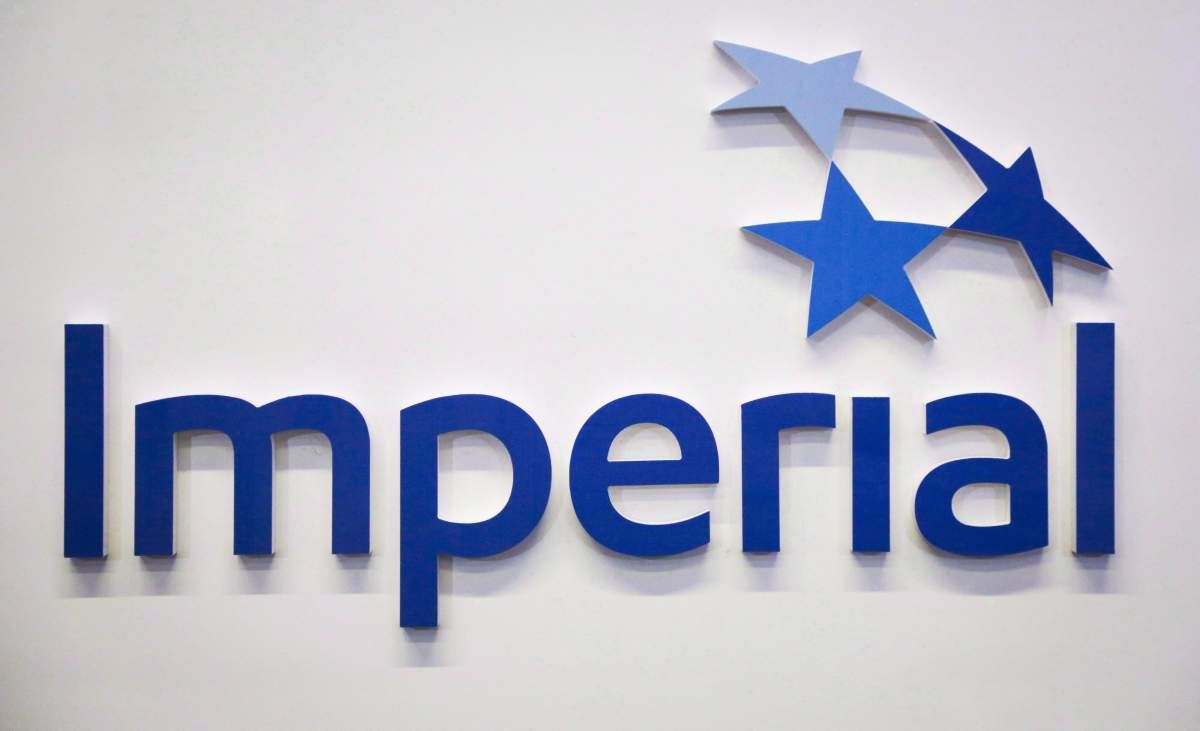Imperial Oil Ltd. is cutting its crude-by-rail shipments from 168,000 barrels per day in December to “near zero” this month and its CEO is placing the blame squarely on the Alberta government’s oil production curtailment order.

The collapse in discounts on western Canadian crude oil prices since the cuts were announced in early December has ruined the economic case for shipping oil by rail to customers in the United States, Rich Kruger told a conference call Friday.
“Crude-by-rail should be helping to alleviate this situation in the province,” he said, referring to the government’s goal to support local prices by reducing production to free up pipeline space and draw down overflowing storage.
“But now, because of the drastic, dramatic manipulation and impact on differentials, take-away capacity is now being idled. That is a sad state, a very tangible example of what we believe is ill-advised, ill-informed, negative consequence of this curtailment order.”
The difference in price between Western Canadian Select bitumen-blend oil and New York benchmark West Texas Intermediate widened to as much as US$52 per barrel in October, but shrunk to single digits in December and January.
In order to support the higher cost of rail over pipelines, the differentials need to be higher than US$15-$20 per barrel, Kruger said.
- Alberta Premier Danielle Smith speaks at Conservative Party convention
- Owners of Calgary jewelry store say they were scammed thousands during POS purchase
- Calgary man in life-threatening condition after crash involving motorized scooter
- ‘Difficult news’ as Imperial announces speedier shutdown of N.W.T. oilfield
Earlier this week, Alberta Premier Rachel Notley said the province would reduce the 325,000-bpd production curtailment that came into force on Jan. 1 by 75,000 bpd, citing levels of storage that have fallen faster than expected.

Get daily National news
But the reason storage is lower is because of the growth of crude-by-rail, Kruger said on the call, adding Imperial accounted for about half of all such shipments and its decision to idle its rail terminal near Edmonton will affect whether storage levels continue to fall.
Imperial has opposed the curtailments from the start, but one of its supporters, Canadian Natural Resources Ltd., reportedly criticized the program earlier this week.
A letter to suppliers said its February curtailment level of 100,000 bpd would force it to close its ECHO pipeline, which delivers heavy crude to its blending facility in Hardisty, Alta., a move that could lead to job cuts in northeastern Alberta, according to media reports that were confirmed by the company.
On Friday, however, Canadian Natural said the new production limits for February and March will allow it to maintain production at levels to safely operate the ECHO pipeline — without saying what its new curtailment level will be.
“Canadian Natural continues to support the government of Alberta’s decision to curtail production as a strong measure to protect the value of Canada’s resources and protect jobs, provided that curtailments are implemented in an equitable, transparent and reasonable manner,” it said in a statement.
The first 10,000 bpd a company produces are exempt from the cuts, which means they affect only 28 of more than 300 Alberta players.
Imperial reported net income of $853 million in the fourth quarter of 2018, compared with a loss of $137 million in the same quarter a year earlier, as revenue and other income hit $7.89 billion, down from $8.08 billion in the last three months of 2017.
Imperial said its upstream operations lost $310 million in the fourth quarter, compared with a loss of $481 million in the same period of 2017.
Meanwhile, the company’s downstream operations earned $1.14 billion in the quarter, up from $290 million in the fourth quarter of 2017, boosted by stronger margins the absence of turnaround activities in the quarter.







Comments